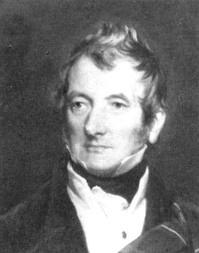Annotation:Lord John Campbell (1): Difference between revisions
No edit summary |
No edit summary |
||
| Line 1: | Line 1: | ||
'''Back to [[{{BASEPAGENAME}}]]''' | =='''Back to [[{{BASEPAGENAME}}]]'''== | ||
---- | ---- | ||
<p><font face="garamond, serif" size="4"> | <p><font face="garamond, serif" size="4"> | ||
'''LORD JOHN CAMPBELL [1].''' Scottish, Slow Strathspey. D Major. Standard tuning (fiddle). AABB (Skinner): AABBCD (Honeyman). AABBCCDD (Athole, Cranford/Holland, Gow, Kerr). The strathspey the Gows called "Lord John Campbell" was originally a six-turn composition of expatriate Scottish dancing master and fiddler-composer [[Biography:Duncan MacIntyre]], who called it "[[Miss Cumming's Strathspey]]," according to John Glen (1895). The melody (under the "Lord John" title) is attributed to MacIntyre in Skinner's '''Harp and Claymore''' (1904, see ms. entry), although it appears | '''LORD JOHN CAMPBELL [1].''' Scottish, Slow Strathspey. D Major. Standard tuning (fiddle). AABB (Skinner): AABBCD (Honeyman). AABBCCDD (Athole, Cranford/Holland, Gow, Kerr). The strathspey the Gows called "Lord John Campbell" was originally a six-turn composition of expatriate Scottish dancing master and fiddler-composer [[Biography:Duncan MacIntyre]], who called it "[[Miss Cumming's Strathspey]]," according to John Glen (1895). The melody (under the "Lord John" title) is attributed to MacIntyre in Skinner's '''Harp and Claymore''' (1904, see ms. entry), although it appears unattributed in Gow's '''Fourth Collection'''. Gow is deemed responsible for the name change. Somewhat confusingly, MacIntyre did compose tune for Lord John, but it is a different melody (see "[[Lord John Campbell (2)]]"). J. Scott Skinner composed a variation set for the tune, which appears in his '''Harp and Claymore''' collection (1904). In his notes on his manuscript copy [http://www.abdn.ac.uk/scottskinner/display.php?ID=JSS0108] of the strathspey (to his publisher, for the '''Harp and Claymore''') Skinner adds a footnote saying that his version is the one played by fiddler Archie Menzies in an 1856 Edinburgh competition among twenty-two players, when Menzies won first prize. Skinner further says the tune was also played by his friend Peter Milne at another competition (in Aberdeen), where Milne also won first prize. | ||
<br> | <br> | ||
<br> | <br> | ||
| Line 32: | Line 32: | ||
<br> | <br> | ||
---- | ---- | ||
'''Back to [[{{BASEPAGENAME}}]]''' | =='''Back to [[{{BASEPAGENAME}}]]'''== | ||
Revision as of 03:23, 26 November 2013
Back to Lord John Campbell (1)
LORD JOHN CAMPBELL [1]. Scottish, Slow Strathspey. D Major. Standard tuning (fiddle). AABB (Skinner): AABBCD (Honeyman). AABBCCDD (Athole, Cranford/Holland, Gow, Kerr). The strathspey the Gows called "Lord John Campbell" was originally a six-turn composition of expatriate Scottish dancing master and fiddler-composer Biography:Duncan MacIntyre, who called it "Miss Cumming's Strathspey," according to John Glen (1895). The melody (under the "Lord John" title) is attributed to MacIntyre in Skinner's Harp and Claymore (1904, see ms. entry), although it appears unattributed in Gow's Fourth Collection. Gow is deemed responsible for the name change. Somewhat confusingly, MacIntyre did compose tune for Lord John, but it is a different melody (see "Lord John Campbell (2)"). J. Scott Skinner composed a variation set for the tune, which appears in his Harp and Claymore collection (1904). In his notes on his manuscript copy [1] of the strathspey (to his publisher, for the Harp and Claymore) Skinner adds a footnote saying that his version is the one played by fiddler Archie Menzies in an 1856 Edinburgh competition among twenty-two players, when Menzies won first prize. Skinner further says the tune was also played by his friend Peter Milne at another competition (in Aberdeen), where Milne also won first prize.

The Gow's title references John Douglas Edward Henry Campbell [2] (1777-1847) of Ardincaple, 7th Duke of Argyll. He was known as Lord John Campbell until 1839, when his older brother died, and Lord John succeeded as Duke. He was married three times (notably to the celebrated beauty Lady Charlotte Campbell) and was a Scottish peer and Whig politician, representing Argyll for decades. The Duke must have enjoyed music, for the Gows note in their Fourth Collection (1800) that they were "indebted to Col. & Lady Charlotte Campbell for the beautiful Tune" of "Maid of Isla."
Source for notated version:
Printed sources: Carlin (The Gow Collection), 1986; No. 122. Cranford (Jerry Holland: The Second Collection), 2000; No. 121, p. 46. Gow (Fourth Collection of Niel Gow's Reels), 2nd ed., originally 1800; p. 10. Honeyman (Strathspey, Reel and Hornpipe), 1898; p. 37. Kerr (Merry Melodies), vol. 2; No. 165, p. 19. Ryan's Mammoth Collection, 1883; p. 168. Skinner (Harp and Claymore), 1904; p. 82. Stewart-Robertson (The Athole Collection), 1884; p. 115.
Recorded sources:
See also listing at:
Alan Snyder's Cape Breton Fiddle Recording Index [3]
